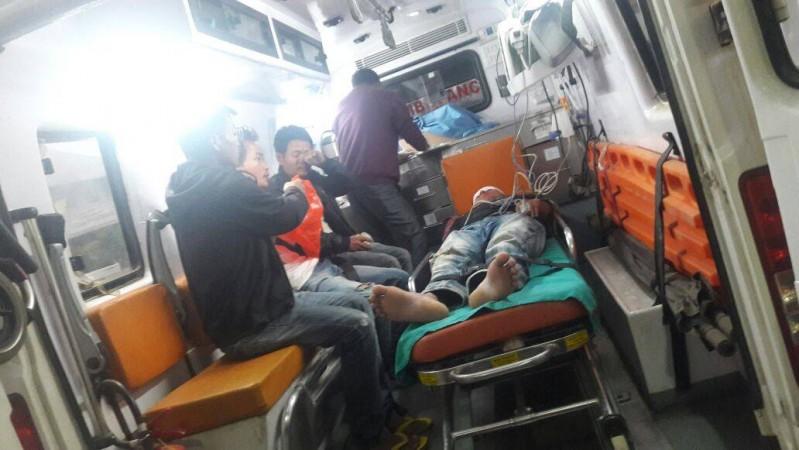
Election, be it the state Assembly or the Lok Sabha, is celebration time in Manipur, albeit with guns and grenades, and not firecrackers. I'm going to tell you the most puzzling element of elections in the state, something that can be seen and experienced only by those living there.
The celebrations for the 11th Manipur Assembly Elections 2017 have already begun. Live bombs were found in Imphal ahead of Prime Minister Narendra Modi and Congress vice-president Rahul Gandhi's visit to the state capital to campaign for their respective parties.
A bomb blast also rocked the residence of Naga People's Front (NPF) candidate K Leishiyo in Langol (Imphal West district) on Thursday, injuring eight people. It is also reported that some miscreants have taken away vehicles belonging to the Bharatiya Janata Party (BJP) and Lok Janshakti Party (LJP) candidates in 47 Karong AC, a hill constituency known for violence during elections.
[READ: Why are Narendra Modi and Rahul Gandhi playing with Naga issue now?]
Who is responsible for all these election-related violence? Nobody has claimed responsibility so far or will do so, but it is obvious that only underground groups would resort to such acts. The people of the state witness violence in every election, so it is easy to tell. The nexus between armed outfits and politicians cutting across political parties have created a complex scenario in the state that violence has become almost inevitable.
Manipur is home to more than 40 active underground groups, the most prominent ones being Kangleipak Communist Party (KCP), People's Revolutionary Party of Kangleipak (PREPAK), People's Liberation Army (PLA), United National Liberation Front (UNLF), Coordination Committee (CorCom), Nationalist Socialist Council of Nagaland - Khaplang (NSCN-K), Zeliangrong United Front (ZUF), and Kuki National Front (KNF).
The insurgency group, Nationalist Socialist Council of Nagaland - Issak Muivah (NSCN-IM) that signed the Naga Peace Accord with the Modi government in 2015, has a strong hold in most parts of the hill regions that constitute more than 92 percent of the state's total land area.
What do you expect if all these underground outfits that have been hitherto living in hiding or in the jungles come overground like ants before the rain? Do you expect peace?
The problem is not just the underground outfits. It is alleged that several candidates contesting in the state Assembly elections work hands in gloves with them, which is why cases of vandalism, booth capturing, threats, and boycotting of certain political parties by underground groups are not uncommon. And the banned outfits won't risk their lives for nothing – they do it in exchange for money.
Election is an opportunity for underground outfits to make money, perhaps enough to sustain their expenditure, including purchase of armament for the next five years (until the next elections). As for politicians, it's all about winning even if it is to feed the sources that cause bloodshed.

















